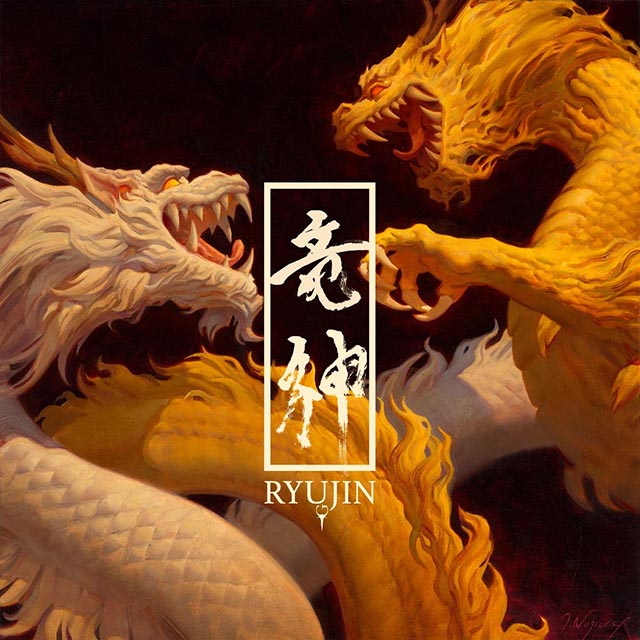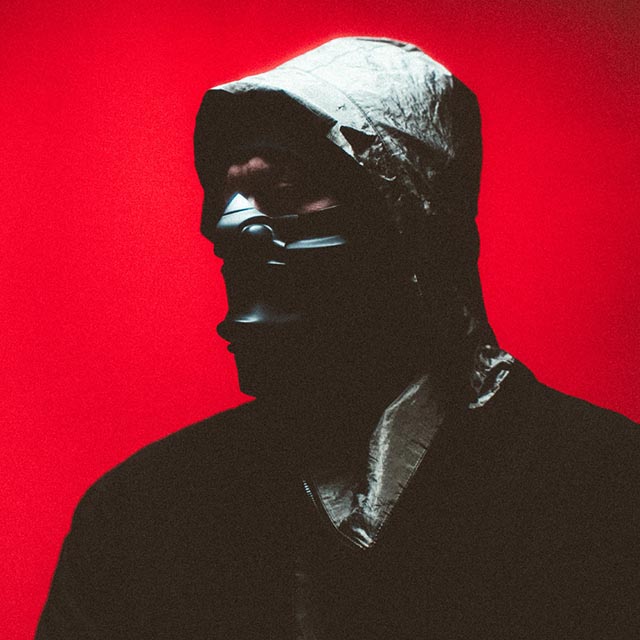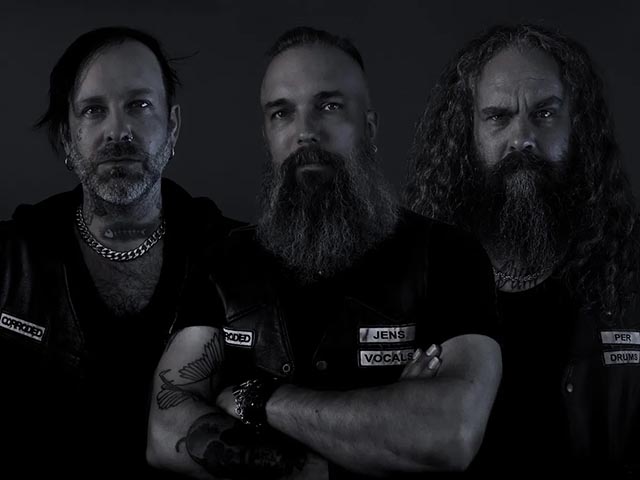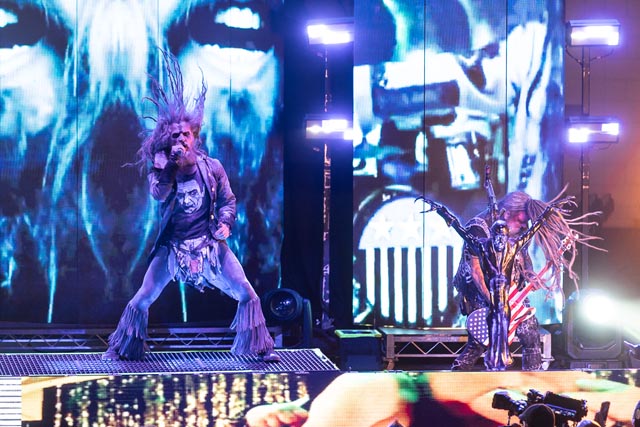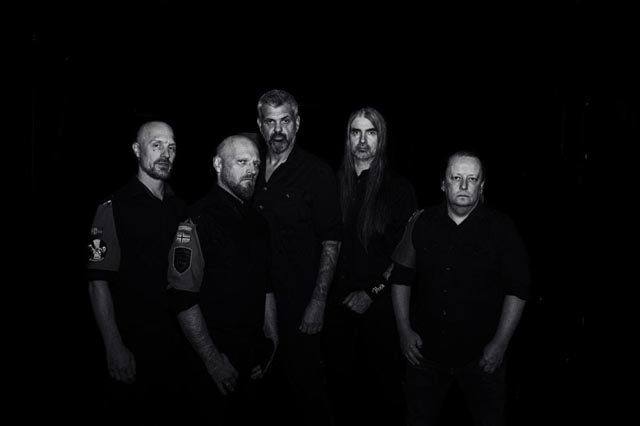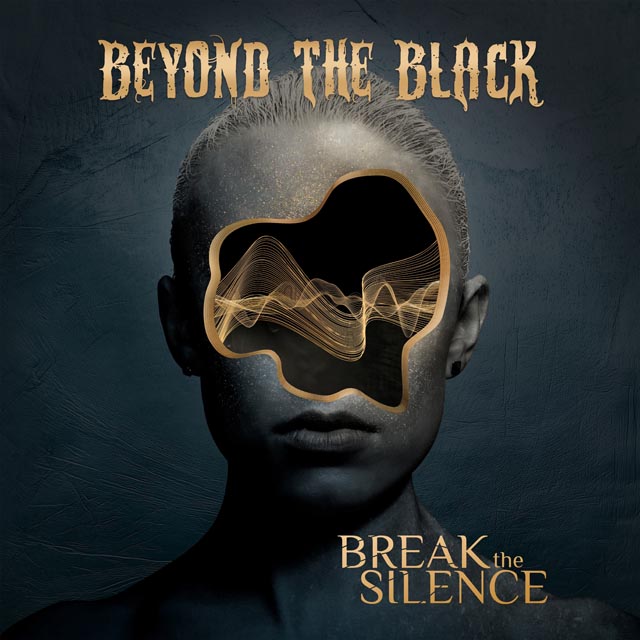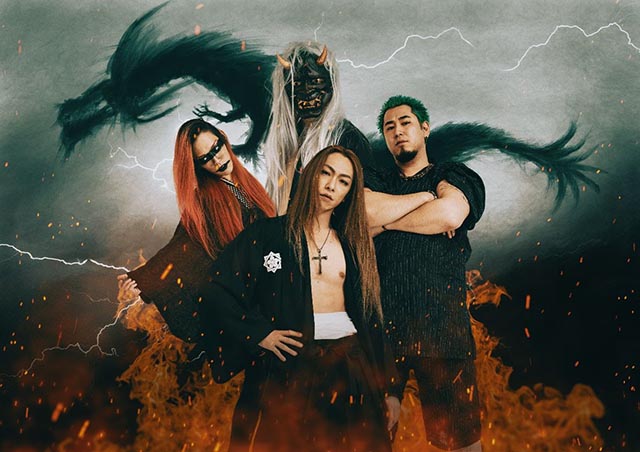
photo credit: Litch
The samurai metal outfit Ryujin took everyone by surprise towards the end of 2023 by not only changing their name (formerly known as Gyze) but also announcing their new self-titled album, released on January 12th via Napalm Records. While our thoughts on the album were shared last week (read our review here), Metal Insider caught up with guitarist/vocalist Ryoji Shinomoto to delve behind the scenes of the new album, discuss the name change, and more.
What inspired the name change from Gyze to Ryujin, and how has this change influenced the new album?
Well I am proud of GYZE’s activities. I’m proud of what GYZE does, but it seems to be hard to pronounce and I’ve always been told “Guys”. Matthew didn’t understand it at first, so we talked about changing the name. He suggested RYUJIN, after my name. We decided together. Musically, it’s an extension of what we’ve had so far, but we’ve added more clean vocals and more variety to the songs!
How did the collaboration with Matthew Kiichi Heafy come about?
At first, after an interview with Metal Hammer, the reporter and Matt were talking about us and X. It was around the time that his Ibaraki was released, and he was also talking about the three tones. Both he and I were using the shamisen. We saw them talking and got in touch!
We were just getting ready to start our new activities after Corona, and we wanted to try something new. So I asked him to be my guest at first and he agreed to do more work for me!
He taught me the possibilities of clean vocals. He also coached me a lot on vocals. I think it was a lot of work for him. Because I was a screamer. Also, as I said earlier, it expanded the band’s possibilities. In other words, it opened my eyes to the possibility of playing many different types of music. I never thought the day would come when I would sing a ballad. I also like making pop songs, but I try not to play them in a band. But he also broke those chains. I’m sure that what he gave me will continue to live on forever.
Can you elaborate on blending Japanese and English lyricism in your music and the influence of traditional Japanese elements?
As for the lyrics, we use ones that match the melody. If the clear, hard pronunciation of Japanese sounds easier to sing, then we choose Japanese, and if the natural sound of English suits you better, choose English. Saigo No Hoshi includes two versions: mine in Japanese and Matt’s in English, so I hope you enjoy the differences.
As for the influence from Japanese culture, from my previous work Asian Chaos, I incorporated gagaku, the world’s oldest orchestral instrument. To explain a little bit, the ryuteki is a dragon dancing in the sky, the hichiriki represents the voices of the people, and the sho represents the sky, which represents the universe.
I also use the shamisen for percussive and energetic accents. The Chinese erhu, also known as the oriental violin, is a favorite instrument. As for the scales, I sometimes incorporate Japanese pentatonic or Hirajoshi scales used in the koto.
What themes or stories inspired the tracks on the upcoming self-titled album?
Every song is different, but I incorporated a lot of thoughts about dragons.
In the East, dragons are auspicious and peaceful. In the West, dragons are dark and villainous, right?
The dragon god is considered the god of water. Japan is surrounded by the sea, right? Because of the proximity of mountains and oceans, he probably exists as a god of nature as well.
When you go to shrines, you see dragons everywhere.
The basis of my music is nature worship and a wish for peace.
That’s why the name “RYUJIN” fits so well.
Besides, when you think of metal, you think of dragons, right?
What was the experience and process like creating the music video for “The Rainbow Song?”
The song was shot in a rented park near the high school I attended in my hometown. The plaza made of stone is very unique. Also included are aerial shots of Hokkaido’s landscapes taken from a drone, which I photograph as a hobby.
It also includes scenic footage prepared by a videographer.
I borrowed the costume from a friend of mine, the Ainu people of Hokkaido, so it’s a real ethnic costume. Shuji in particular looked great.
I used both Japanese and indigenous costumes.
I feel like this song is perfect because it expresses diversity!
The song was originally about rainbow trout and char, both exotic and native fish. The lyrics were too silly, so I had Matt rewrite them in English to make them sound better.
How was the experience of working with Mukai Wataru of the Kansai Philharmonic Orchestra on the album?
We live in the same town and were featured together in the local newspaper about 5 years ago. After some time, we decided to meet up! We quickly became friends. When I found out that he also liked metal, I immediately asked him to perform as a guest. Recording with him was fun! It’s a great feeling to work with high-level people. He also works on classical music from Western culture, and seems to be looking for reasons why Japanese people do it. We were all the same and we had a lot of things in common!
Can you discuss more about the songs “Saigo No Hoshi” and “Ryujin”?
Saigo No Hoshi is a story about a warrior dying on the battlefield thinking about his family in his homeland and praying for peace.
My Japanese version of the song and Matt’s English version both convey the meaning that no matter which country you stand in, your feelings for your family and peace will not change.
RYUJIN is a story about a dragon god who worships the threat of nature that humans cannot resist. In Japan, Ryujin is considered the highest-ranking nature god. I think this is because Japan is prone to natural disasters such as earthquakes, volcanoes, floods, and tsunamis. Therefore, I want the Dragon God to watch over peace! It contains a message. Musically, it is characterized by melodious oriental melodies and heavy symphonic orchestral arrangements. Oriental instruments are also used everywhere as accents.
Looking ahead, what plans do you have following the release of the new album?
At the moment, I’m receiving information about performing at summer festivals. But only our manager Moritz knows everything! If you listen to it a lot, I think we can go on a lot of tours, so please continue to support us! Also, I’ve actually been working on some new songs, and there are songs that weren’t included this time, so I want to release the next one as soon as possible.
Can you share some of your favorite Japanese metal bands, and recommend any lesser-known gems from the Japanese metal scene?
Actually, I don’t listen to much Japanese metal. However, the band Ningen Isu plays a unique sound that is extremely original! Although they are a three-piece band that has been around for a long time, they are one of the most original bands.
Is there anything else you want to say or add about the new album?
Arigato! Thank you for reading to the end! If you want to listen to Japanese samurai metal, please visit RYUJIN! The merchandise is Japanese and cool, so I believe it will be enjoyed not only by metal fans but also by anime fans! See you in your city someday!
